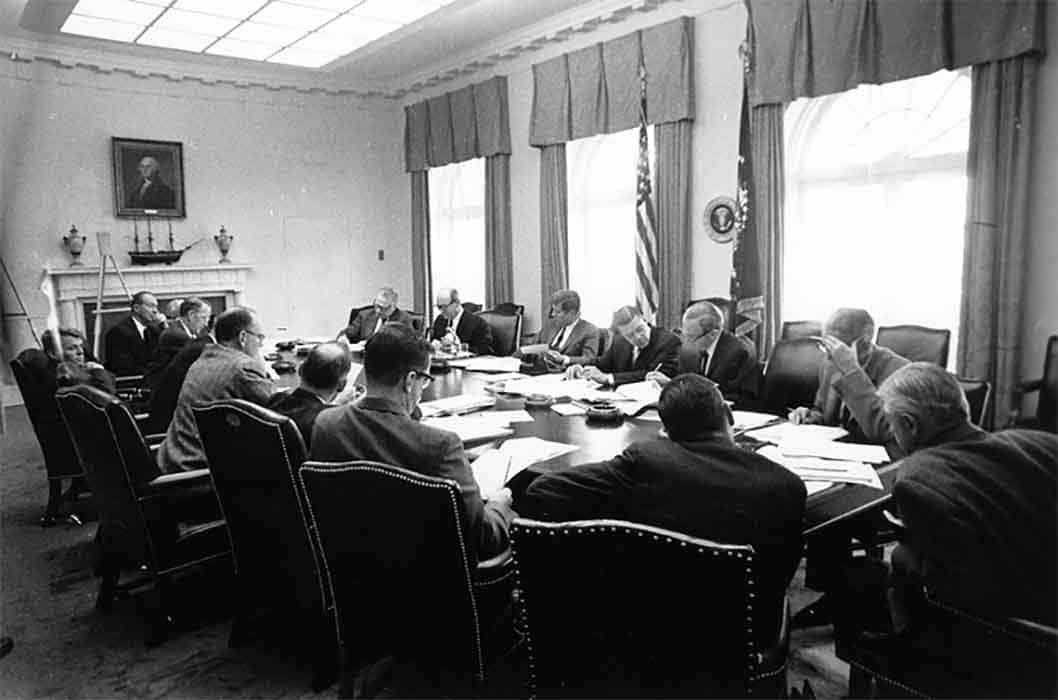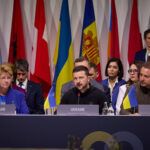The nuclear launch authorizer’s guide to staying calm on election night
By Matt Field | November 3, 2020
 Illustration Credit: Bulletin/Pixabay.
Illustration Credit: Bulletin/Pixabay.
Their thumbs are calloused from refreshing Nate Silver’s twitter feed too many times. Their nerves are frayed from too much time spent figuring out what’s going on in places like Lackawanna County. (I know you know where it is.) Americans are heading into this Election Day full of anxiety and stress. For many, the stakes of today’s contest between President Donald Trump and Joe Biden couldn’t be higher. Anxiety-inducing information will be arriving in social media feeds, on TV screens, and on news websites at a furious pace later today. But it’s important for people to take a moment to breathe, a second to ease their worried minds. Perhaps they might consider a few tips from the annals of nuclear weapons history, insights from times when people, through relatively calm rationality, were able to avert the worst in the highest of high stress situations.
The man who saved the world. In 1983 Soviet Lt. Col. Stanislav Petrov was the duty officer working the overnight shift at the Soviet Union’s nuclear early warning base. His job was to monitor the Soviet early warning system and alert his higher ups to US nuclear attacks. In the wee hours of Sept. 26, an attack appeared to be happening.
“The sirens sounded very loudly, and I just sat there for a few seconds staring at the screen with the word ‘launch’ displayed in bold red letters,” Petrov told the BBC in 2013. Petrov watched as his systems warned him of another four launches—for a total of five incoming Minuteman intercontinental ballistic missiles. Only minutes remained before they would reach their targets. “The computers changed their alerts from launch to missile strike.”
But Petrov decided not to trust the computer. He reported a false alarm to his superiors, forestalling a possible Soviet retaliatory strike. “But I myself was not sure until the very last moment,” he said.
Making an educated guess, Petrov decided that the alerts were wrong.
In a real war, the United States would launch a massive attack on Soviet defenses, Petrov had been told. “When people start a war, they don’t start it with only five missiles,” he told The Washington Post. Petrov, who died in 2017, is often credited with preventing a nuclear war.
Tip: Like Petrov, you, too, may be confronted with misleading information tonight. A disproportionate number of Democrats are voting by mail this year to avoid crowds during the COVID-19 pandemic. They’re casting ballots that might not be counted right away in all-important swing states like Pennsylvania. As in-person vote numbers trickle in, Trump may look to be in a dominant position. Likewise, mail-in and early votes may be counted first in Florida and other states, giving Biden a perceived edge. But, just as the missile alerts faded from Petrov’s computer screen, so too may the “red mirage” and the “blue mirage.”
Be like Petrov. Rely on what you’ve learned about how things are supposed to work and take a deep breath.

The Cuban Missile Crisis and bad advice. For a little over a month in the fall of 1962, the world stood on edge as the United States and the Soviet Union engaged in a standoff over Soviet nuclear missiles in Cuba–just 90 miles from the United States. Coming a little more than a year after the ill-conceived Bay of Pigs invasion, in which US-trained Cubans made a miserably failed attempt to overthrow Cuban leader Fidel Castro, the Cuban Missile Crisis happened at a time of sky-high tensions between the Cold War enemies. When US spy plane photos showed Soviet missile installations in Cuba, President John F. Kennedy had to do something. He’d taken a tough line on Cuba and the Soviet Union as a presidential candidate, after all.
Kennedy’s advisors, including his brother Robert Kennedy, had a lot of suggestions.
The advisors developed proposals, including a strike on the Soviet missile facilities or a full-on invasion of the island involving tens of thousands of troops. Luckily for the world, Kennedy didn’t invade, which could have ignited a nuclear war. He didn’t go with his brother’s idea to stage a false-flag attack on a US base to justify an invasion, either.
According to a review of his book in The New Yorker, historian Martin J. Sherwin believes Adlai Stevenson, the US representative to the United Nations and a two-time presidential candidate, successfully urged Kennedy to negotiate. The Soviets pulled their missiles off the island, and the United States agreed not to try and invade Cuba again and pulled its own missiles from Turkey.
Tip: As you spend today doomscrolling the web for election analysis, your blood pressure rising with each mouse click, find that calm reasonable person in your life who can talk you down from the ledge. Find your Adlai Stevenson.
The near-war blooper reel. On Nov 9, 1979, the North American Aerospace Defense Command (NORAD), the Pentagon’s National Military Command Center, and the Alternate National Military Command Center got an alarming warning. A huge Soviet nuclear attack was underway. Intercontinental ballistic missile sites were alerted. Bombers were readied. Fighter jets took off.
President Jimmy Carter’s so-called “doomsday plane” took off, without Carter on board. But the staff at the command centers soon found something was off. US satellites weren’t showing what the computers at NORAD were, neither were the early-warning radars. It turned out that a technician at NORAD had put a training tape into the centers computer system, one depicting a realistic nuclear attack.
Less than a year later, on June 3, 1980, a chip in a NORAD computer caused another problem that similarly put US nuclear forces on high alert. National Security Advisor Zbigniew Brzezinski, upon learning that the first report of 220 inbound missiles was incorrect and that, in fact, the correct number was 2,200 missiles, decided against waking up his wife before calling the president and urging a retaliatory strike. It would be better for her to die in her sleep, Brzezinski reportedly reasoned. But before he could make the call to Carter, Brzezinski’s military aide called to say it had all been a false alarm.
Tip: The web will be flooded with election-related disinformation today. There could be false claims about voting irregularities such as ballots being thrown away, or of people voting twice. Trump himself has been making false claims about a rigged election or voter fraud for much of the election cycle. When you see something that causes you to break out in cold sweats, check another source.
The presidential elections are a high stakes event. It’s understandable to be nervous. But remember that first reports can be and often are incorrect. Through it all, try to maintain the calm of a Stanislav Petrov and the wisdom of Adlai Stevenson. You may not save the world from Armageddon, but just maybe, you’ll preserve your own sanity.
Together, we make the world safer.
The Bulletin elevates expert voices above the noise. But as an independent nonprofit organization, our operations depend on the support of readers like you. Help us continue to deliver quality journalism that holds leaders accountable. Your support of our work at any level is important. In return, we promise our coverage will be understandable, influential, vigilant, solution-oriented, and fair-minded. Together we can make a difference.
Keywords: 2020 election, Donald Trump, Joe Biden
Topics: Nuclear Risk















